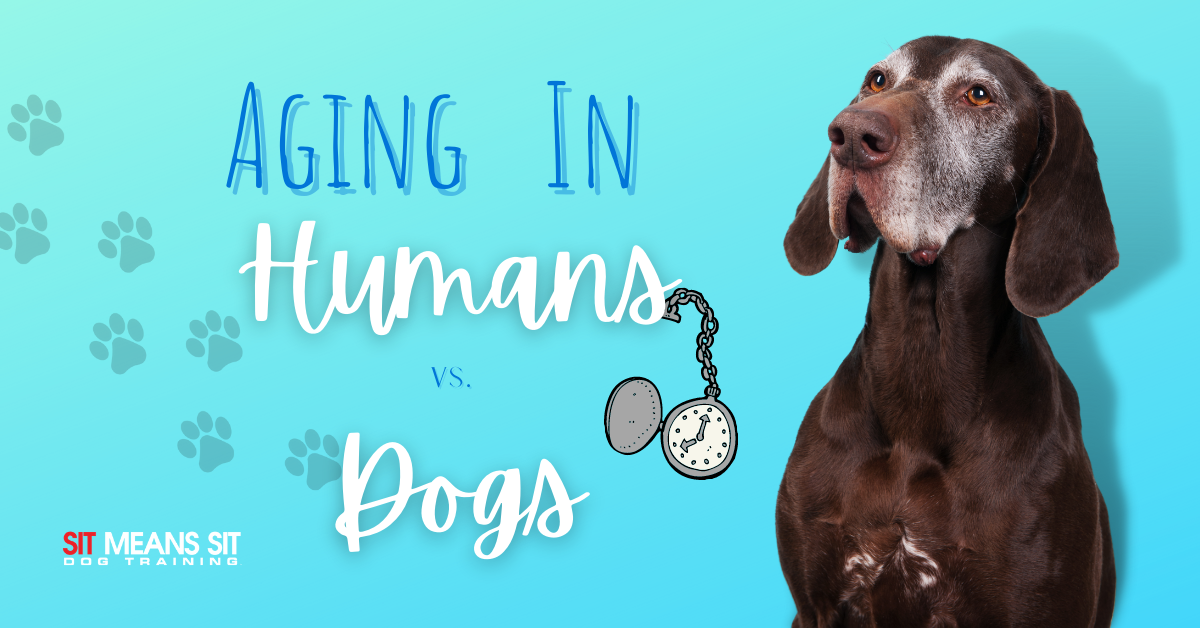
The Difference in Aging Between Dogs & Humans
Times flies by fast, especially when you’re having fun making memories with your furry friend. Just like us, dogs age, but we don’t often notice when they’re maturing like we can with humans. You may have looked at your pet and wondered “How old are you really?”.
With older age, dogs start to get more gray, slow, and you start to question how their physical and mental state changes. Are they ‘middle-aged’ or senior and still acting young? Or have they slowed down completely as age catches up with them?
The care of your dog will change across their lifetime. Different ages of dogs require different treatments. It’s best to know what age of care your dog is at exactly so you can adapt to their needs as they grow older!
Aging Signs In Dogs
Dogs can exhibit some human characteristics of aging as they mature. As humans age, they often develop gray hairs, wrinkles, and are slower in movement and thought. Dogs are very similar in that they show their age through different characteristics, even if they sometimes still have the energy to act like a pup!
Some signs of aging in dogs include:
- Hearing or vision loss usually identified by vets or observing changed behavior
- Their coat changes in color (usually graying), shine, thinning, and skin dullness
- Decreased activity levels, slowness, or lethargy
- Develop muscle and joint issues due to immobility
Aging in any species is inevitable, but by developing a plan early on in the process with your vet, you can devise a treatment to keep your pooch in great shape physically and mentally for years to come!
What Are Dog Years?
Calculating ‘dog years’ can be a little confusing. The general rule followed is to multiply 7 years to your dog’s existing age, in human years. So if your pup is 7 years old, in human years, they would be 49 in dog years! But usually for this to be accurate, you must consider your dog’s breed.
Larger dog breeds who appear to age slower, usually due to their activity levels, like Great Danes, actually age quicker than smaller dogs! Bigger dogs may be considered seniors at a younger age than smaller dogs would be. Check out this aging tool to get an idea of what age your pup is!
Aging Is Okay
Age really is just a number for a lot of dogs! Most dogs will be happy and healthy for a long time if they are well cared for! While it is important to take age into consideration for their health, they still are able to do the things they loved as a pup, just with restrictions!
So if you notice your dog’s playtime isn’t as long as it used to be, this may be a sign that they just are getting tired quicker because they’re aging. As long as your dog doesn’t exhibit any worrying behaviors about their age, they’re most likely just living their life to the fullest, but slower! Don’t forget to schedule check-ins with your vet when needed and develop a plan on when you should switch your dog to senior formulated food!
